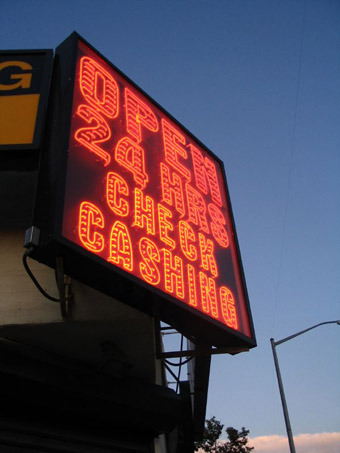Reminder: Cashing A Check From West Africa Is Not A Legitimate Job
Sure, it’s a way to make money, but not for you. It’s a fine way for scammers to make money, as you deposit a phony check and wire the money to the scamsters and their accomplices.
Of course, the best tool against scams is to know the warning signs. A woman in St. Louis looking for work sent her resume in for an administrative assistant job, and instead received a check for $3,450 and instructions to deposit it in an ATM and wire all but $400 to her new “employer,” a globe-trotting journalist. That profession was meant to make it less suspicious that she’d be sending half of the cash to the African country of Benin, but she knew better…and took her experience to a local TV station to warn others.
Advance fee fraud has many variations: deliberately large checks are used to purchase furniture, cars, puppies, and just about anything else sold through online classifieds. Mystery shopping is another common way to frame this fraud: you, the “mystery shopper,” are supposed to be evaluating the customer service that the wire service provides. Instead, the check bounces and you’re out a few thousand dollars.
There are completely legitimate mystery shoppers, but the pay for that job is more like twelve bucks to buy and return an expensive purse or time the different parts of a drive-thru transaction. None of this $400 to cash a check nonsense. You can find listings for these on the site Jobslinger.
Want more consumer news? Visit our parent organization, Consumer Reports, for the latest on scams, recalls, and other consumer issues.


